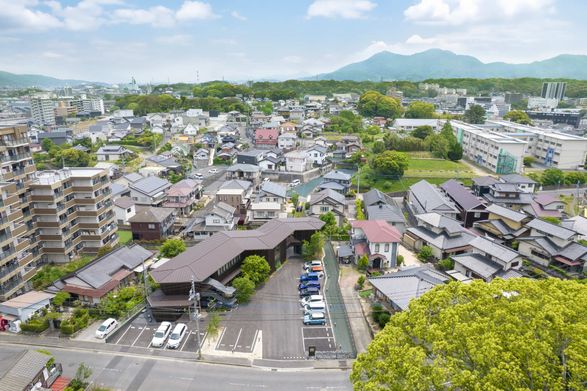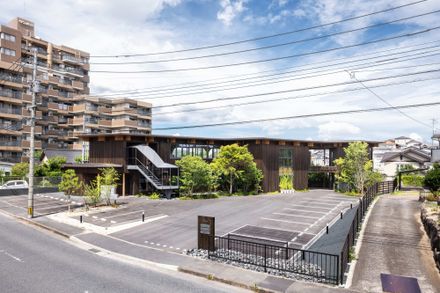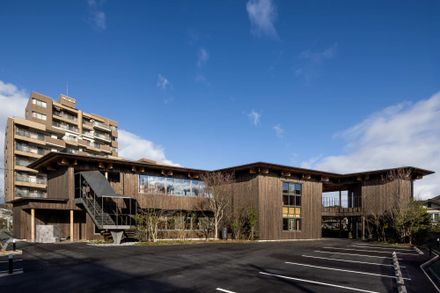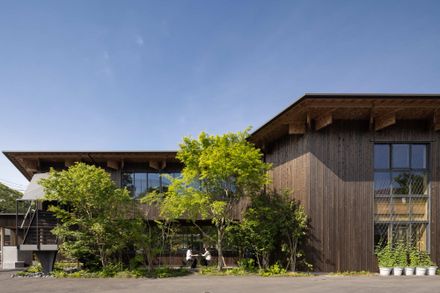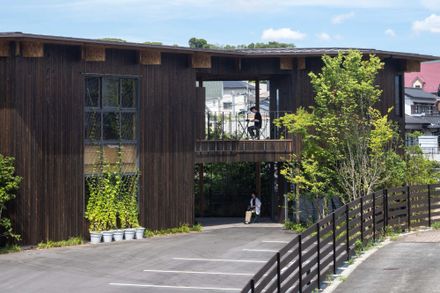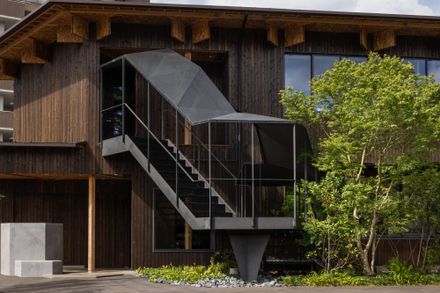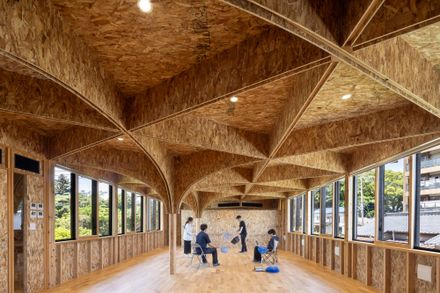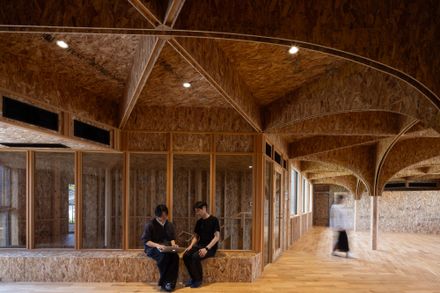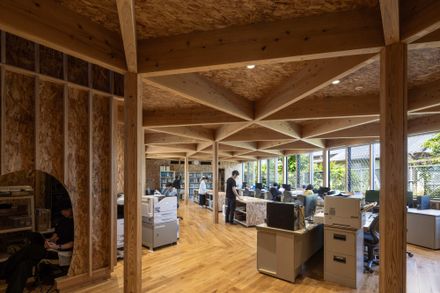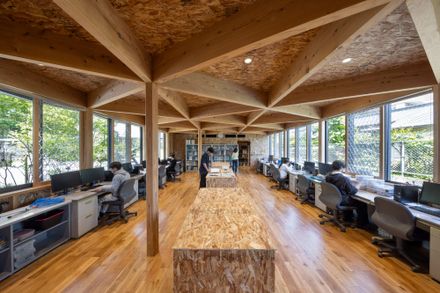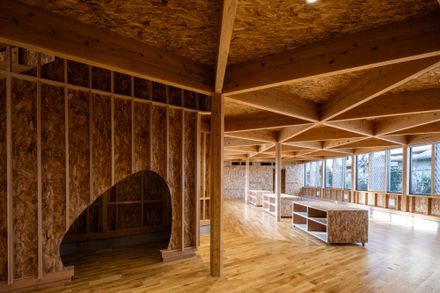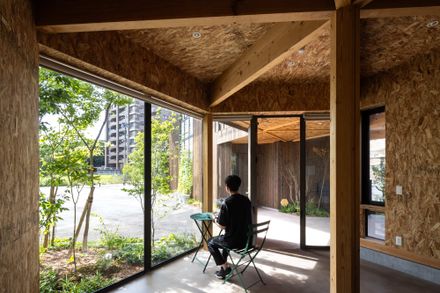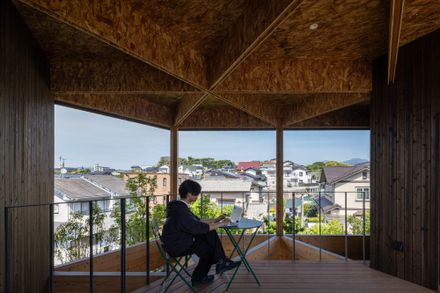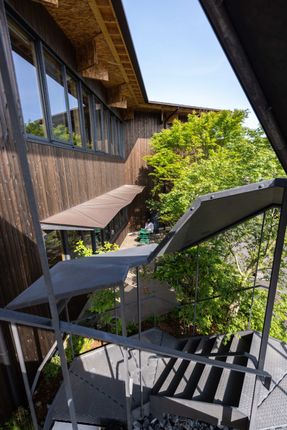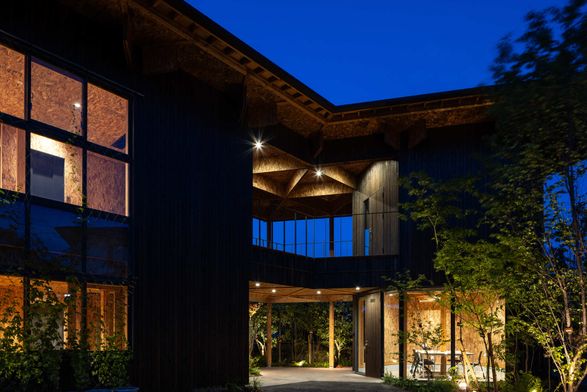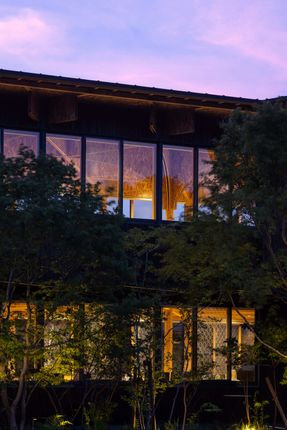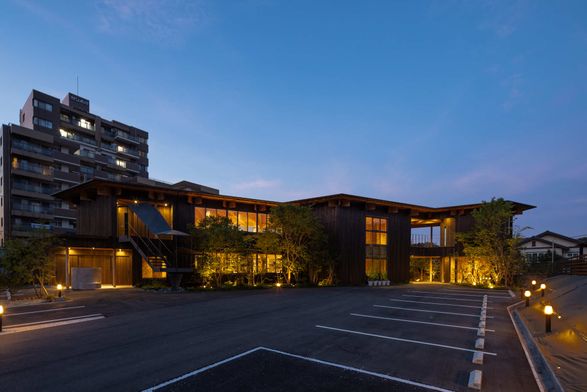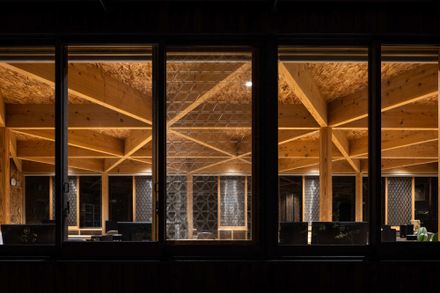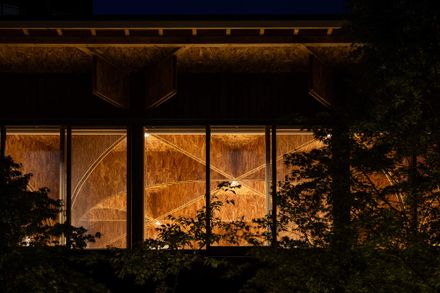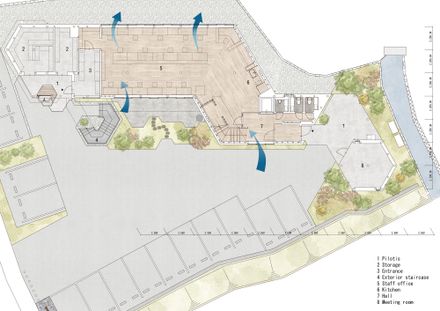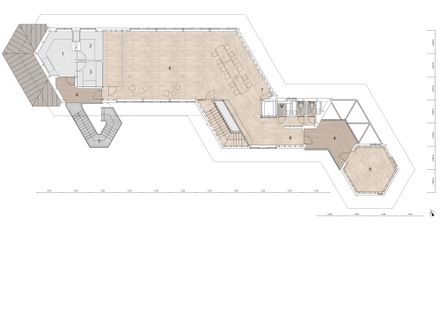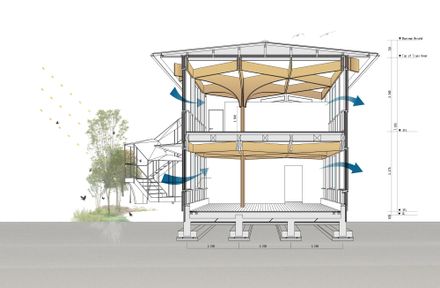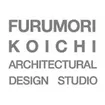
Office In The Breeze
ARCHITECTS
Furumori Koichi Architectural Design Studio+daiki Kuwahara
LEAD ARCHITECTS
Furumori Koichi architectural design studio/Koichi Furumori+Kohei Hashisako+Kenichi Anai,Daiki Kuwahara
LEAD TEAM
Koichi Furumori+Kohei Hashisako+Kenichi Anai, Daiki Kuwahara
ENGINEERING & CONSULTING > STRUCTURAL
Kenichiro Takashima
LANDSCAPE ARCHITECTURE
Tomohiro Urata
GENERAL CONSTRUCTING
Azuma kensestu
PHOTOGRAPHS
Kyoko Omori
AREA
444 m²
YEAR
2024
LOCATION
Kitakyushu, Japan
CATEGORY
Commercial Architecture
This project involves the construction of a small office building located in a residential neighborhood, with Ecoplan Corporation—a company dedicated to the study of wildlife and vegetation—as its primary tenant.
During our initial meetings at their previous office, I was struck by the sight of fishing nets and wetsuits drying outside, a vivid reminder of the hands-on nature of their work.
Our conversations were consistently engaging, and we felt inspired to share the richness of their research with local children.
Given their core mission of conducting environmental surveys and promoting conservation, we envisioned this building as more than just a workplace—it should also serve as a platform for raising ecological awareness within the surrounding community.
HEXAGONAL FRAMEWORK INSPIRED BY NATURE –
To avoid overwhelming the street-facing side of the site, we positioned the building toward the rear of the property.
The back boundary of the lot formed a 120-degree angle, which led us to explore unconventional layout strategies. We found that organizing the plan along a hexagonal grid responded naturally to the site's geometry.
Hexagons—commonly seen in snowflakes, honeycombs, and basalt columns—offer both structural integrity and spatial efficiency.
By incorporating this naturally occurring form into an artificial construct like architecture, we aimed to create a deeper sense of harmony between the building and its natural surroundings. This concept ultimately gave rise to a hexagonal structural system.
PASSIVE VENTILATION THROUGH TAILORED DESIGN –
Situated on an elevated site, the building benefits from consistent and pleasant breezes.
Yet in many urban office projects, operable windows are often avoided due to concerns about wind turbulence or poor air quality.
In our past experience, even when ventilation windows were provided, users hesitated to open them, fearing that strong gusts might scatter papers or disrupt the workspace.
To address this issue, we collaborated with environmental engineers to develop custom "ventilation control panels."
We produced multiple prototypes with varying aperture ratios and conducted extensive wind tunnel testing, ultimately arriving at an optimal configuration.
These panels, used in combination with operable glass windows, enable the interior to comfortably take advantage of natural ventilation across a range of weather conditions.
CONNECTING WITH THE LOCAL COMMUNITY –
During the open house, we were pleased to welcome teachers and students from the neighboring high school's biology club.
Their visit reaffirmed our hope that this building would not only support the daily work of environmental researchers but also serve as a gentle yet effective platform for fostering environmental awareness within the community.
We believe that architecture has the power to communicate values—and in this case, those values are care, curiosity, and respect for the natural world.


